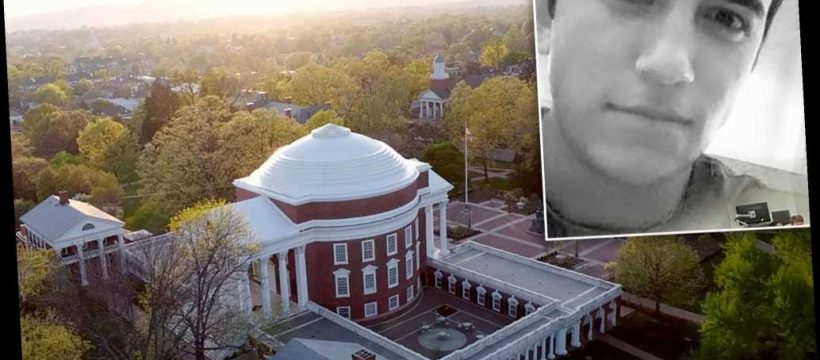More On:
microagressions
Now the speech police are going after small talk
We’ve grown too comfortable with terror, ending teacher tenure & other comments
Everything is offensive nowadays
The redemption of Marcia Clark, don’t you dare look surprised, and other notable commentary
A former University of Virginia medical student can proceed with a lawsuit against the school over his expulsion — which stemmed from questions he asked about the nuance of microaggressions during a panel discussion that led him to him being branded a threat, a federal judge has ruled.
Kieran Bhattacharya sued the prestigious state university for violating his First Amendment rights and a judge denied the school’s attempt to have it tossed last week, court records show.
The trouble for Bhattacharya began in October 2018, when the a second-year medical student attended a panel discussion on the subject of microaggressions. The term is defined by Merriam-Webster as “a comment or action that subtly and often unconsciously or unintentionally expresses a prejudiced attitude toward a member of a marginalized group (such as a racial minority).”
During a question and answer portion of the panel, Bhattacharya sought clarification on the definition of microaggression, asking the presenter, assistant dean Beverly Cowell Adams, if only marginalized groups were impacted by it, court records show.
Adams said it was a “very good question” and the answer is “no” and then Bhattacharya cut in and said her slide indicated victims of microaggressions must be members of marginalized groups.
“So that’s contradictory,” Bhattacharya said, according to court documents.
“What I had there is kind of the generalized definition. In fact, I extend it beyond that. As you see, I extend it to any marginalized group, and sometimes it’s not a marginalized group. There are examples that you would think maybe not fit, such as body size, height, [or] weight. And if that is how you would like to see me expand it, yes, indeed, that’s how I do,” Adams replied.
“Yeah, follow-up question. Exactly how do you define marginalized and who is a marginalized group? Where does that go? I mean, it seems extremely nonspecific,” Bhattacharya followed up.
Adams replied “that’s intention” and it’s “intentional to make it more nonspecific” while Bhattacharya continued to challenge her, essentially arguing the definition and logic behind microaggressions were anecdotal and not backed up with hard, scientific data.
Another dean stepped in and told a story about how former peers and colleagues subjected her to “harmless jokes” and microaggressions related to stereotypes about people who come from rural states, like she did.
In total, Bhattacharya, Adams and the other dean debated back on forth on the semantics of the term for just over five minutes during the event.
Later that day, assistant urology professor Nora Kern, who helped organize the panel and was in attendance, filed a “Professionalism Concern Card” against Bhattacharya saying he “asked a series of questions that were quite antagonistic.”
“He pressed on and stated one faculty member was being contradictory. His level of frustration/anger seemed to escalate until another faculty member defused the situation by calling on another student for questions. I am shocked that a med student would show so little respect toward faculty members. It worries me how he will do on wards,” Kern wrote, court records show.
An assistant dean at the school then asked to meet with Bhattacharya, saying he observed his “discomfort” during the panel and wanted to help him “understand and be able to cope with unintended consequences of conversations.”
The student wrote back and said any perceived discomfort was false.
“I was quite happy that the panel gave me so much time to engage with them about the semantics regarding the comparison of microaggressions and barbs. I have no problems with anyone on the panel; I simply wanted to give them some basic challenges regarding the topic. And I understand that there is a wide range of acceptable interpretations on this. I would be happy to meet with you at your convenience to discuss this further,” the student replied.
While another dean asked to meet with Bhattacharya, the Academic Standards and Achievement Committee met to discuss the concern card and decided to send the student a letter to remind him to be respectful and professional and to suggest he get counseling.
However, that suggestion soon became a mandate, court records show.
Bhattacharya received an email in late November saying he must be evaluated by the schools Counseling and Psychological Services Office before he could return to class.
When he asked what exactly he did wrong and under what authority the school could mandate him to be psychologically evaluated, he was invited to attend an ASAC meeting that was convened to discuss his enrollment status, court documents say.
At the hearing, which Bhattacharya claims he was only given three hours to prepare for, the student recorded audio and took photographs of the attendees and was criticized for doing so. He was told the reason for the hearing was because of recent concerning behaviors and interactions at the panel meeting and after.
The group voted to suspend Bhattacharya for “aggressive and inappropriate interactions in multiple situations” and about a month later, UVA police demanded he leave the campus for allegedly making threatening comments on social media platforms.
Bhattacharya later brought a suit against the school, alleging they violated his first amendment rights and while a federal judge ruled portions of the suit are without cause, he ultimately sided in the student’s favor and is allowing the case to move forward.
UVA did not immediately return a request for comment.
Share this article:
Source: Read Full Article



